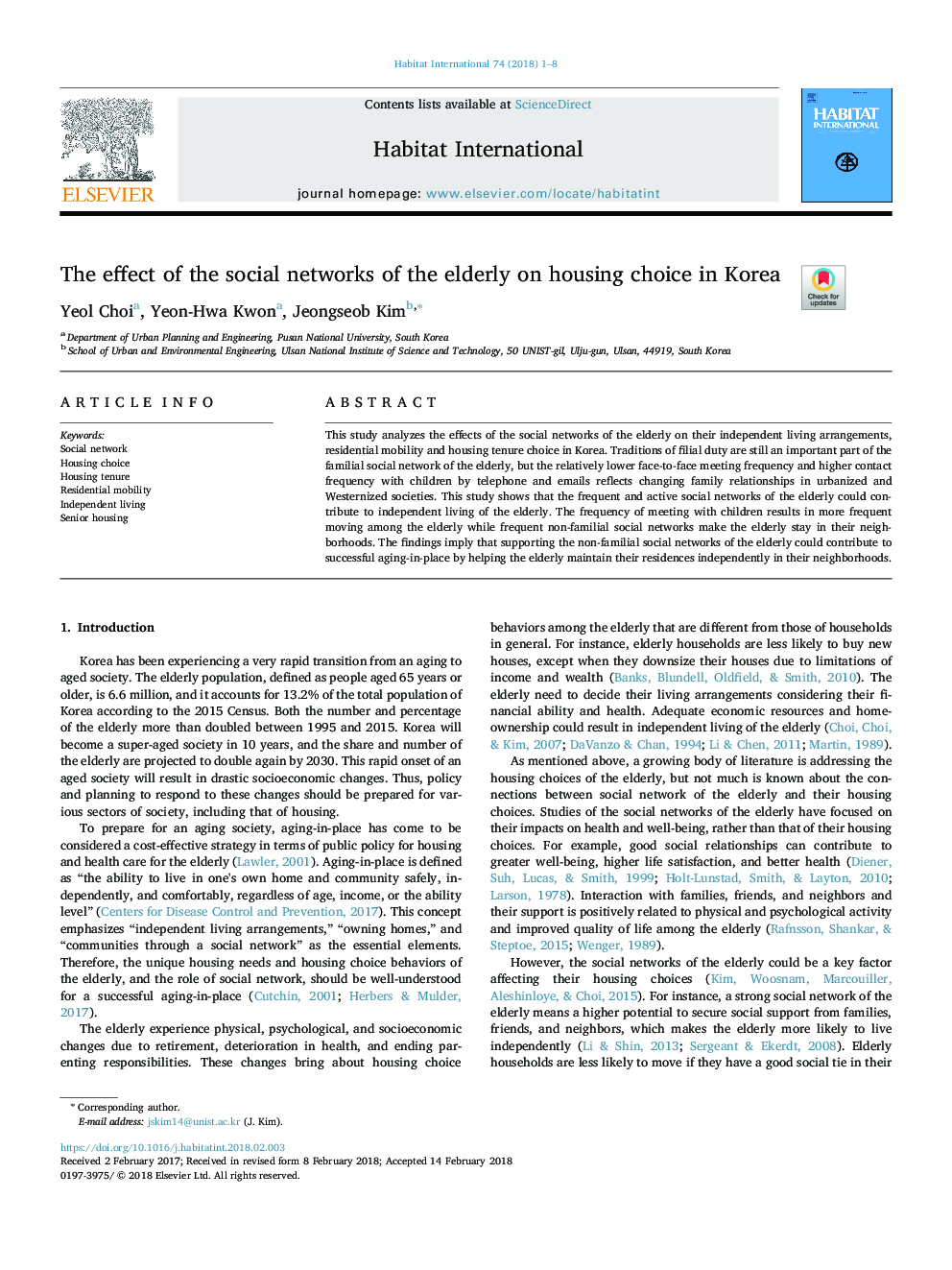| Article ID | Journal | Published Year | Pages | File Type |
|---|---|---|---|---|
| 7455109 | Habitat International | 2018 | 8 Pages |
Abstract
This study analyzes the effects of the social networks of the elderly on their independent living arrangements, residential mobility and housing tenure choice in Korea. Traditions of filial duty are still an important part of the familial social network of the elderly, but the relatively lower face-to-face meeting frequency and higher contact frequency with children by telephone and emails reflects changing family relationships in urbanized and Westernized societies. This study shows that the frequent and active social networks of the elderly could contribute to independent living of the elderly. The frequency of meeting with children results in more frequent moving among the elderly while frequent non-familial social networks make the elderly stay in their neighborhoods. The findings imply that supporting the non-familial social networks of the elderly could contribute to successful aging-in-place by helping the elderly maintain their residences independently in their neighborhoods.
Keywords
Related Topics
Social Sciences and Humanities
Social Sciences
Development
Authors
Yeol Choi, Yeon-Hwa Kwon, Jeongseob Kim,
